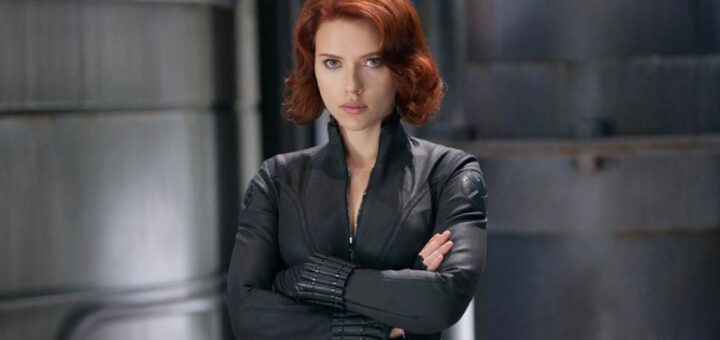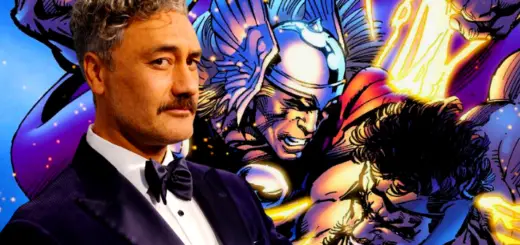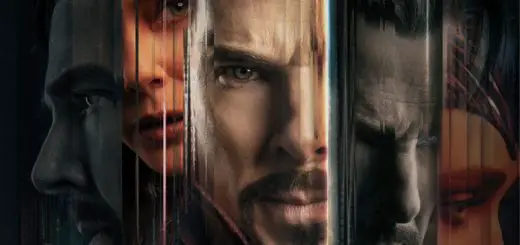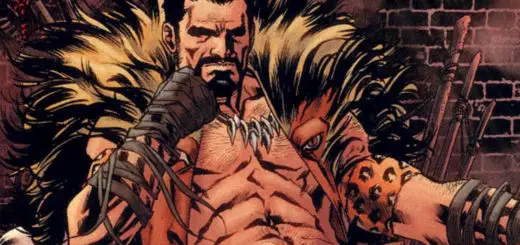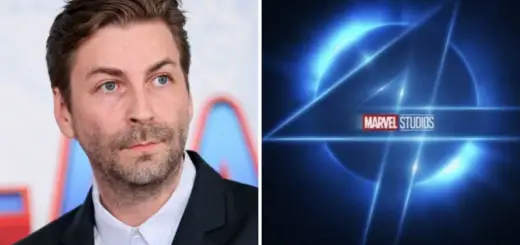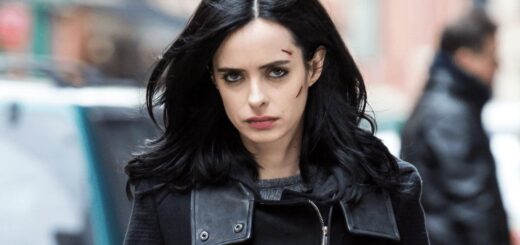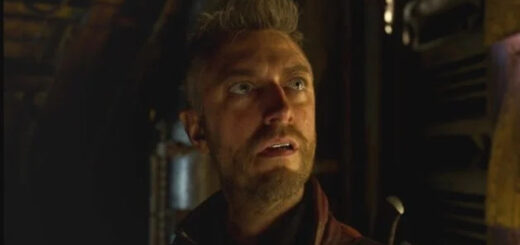Scarlett Johansson Forgets Pandemic, Sues Disney
In The Wall Street Journal, it was reported that one of the world’s highest paid actresses and the fourth highest paid Avenger, Scarlett Johansson is suing The Walt Disney Company over the fact that Black Widow was released simultaneously in both theaters and for streaming on Disney+.
The Legal Argument
Johansson filed a lawsuit on Thursday, July 29th, 2021, in the Los Angeles Superior Court against The Walt Disney Company, “alleging her contract was breached when the media giant released the film on its Disney+ streaming service at the same time as its theatrical debut.”
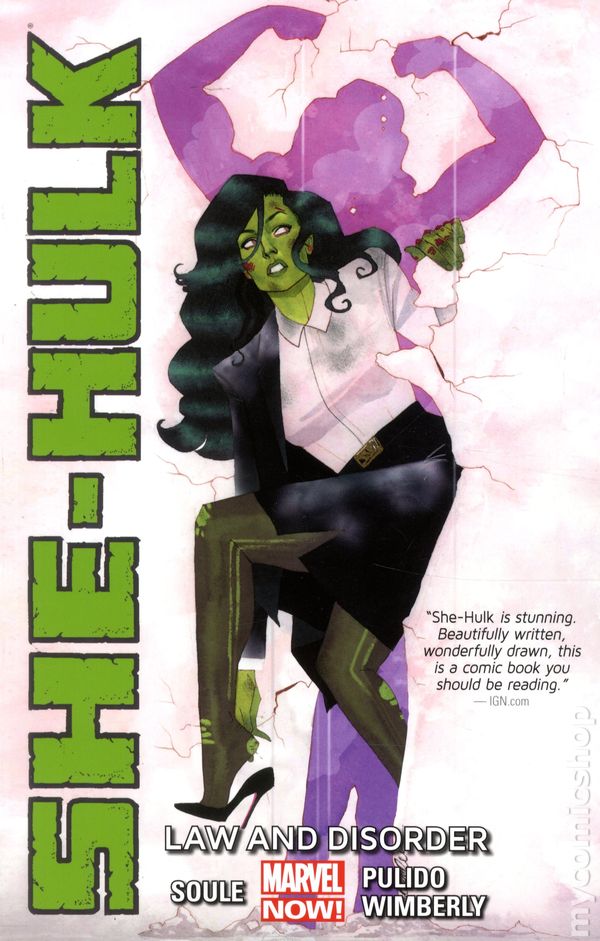
She-Hulk Law and Disorder TPB. Photo: Marvel
Johansson contends Disney breached her contract “without justification,” arguing Marvel was forced to violate its contract with her for the benefit of investors (although a lawyer may argue this part is based on inadmissible heresay); however, she also claims:
Throughout this process, Ms. Johansson, through her representatives, attempted to negotiate with Marvel to reach the aforementioned alternative “understanding” that Marvel’s Chief Counsel had promised under these circumstances. Ultimately, however, Marvel ignored this outreach, no resolution was reached, and the Picture was simultaneously released in theatres and on Disney+ Premier Access on July 9, 2021.
To no one’s surprise, Disney’s breach of the Agreement successfully pulled millions of fans away from the theatres and toward its Disney+ streaming service.
(You can read the full court filing here.)

Black Widow contemplating a lawsuit… Photo: Marvel
Although Black Widow set pandemic era box office records, bringing in a $80 million debut in North America, its earnings steeply declined in the following week, and the film’s revenue currently stands at a little over $100 million domestically, making Nat’s first solo film one of the lowest grossing Marvel films of all time.
According to the industry’s main lobbying organization, National Association of Theater Owners, if the there wasn’t a hybrid release, Black Widow would have “secured a much larger opening weekend, somewhere north of $92 to $100 million.”
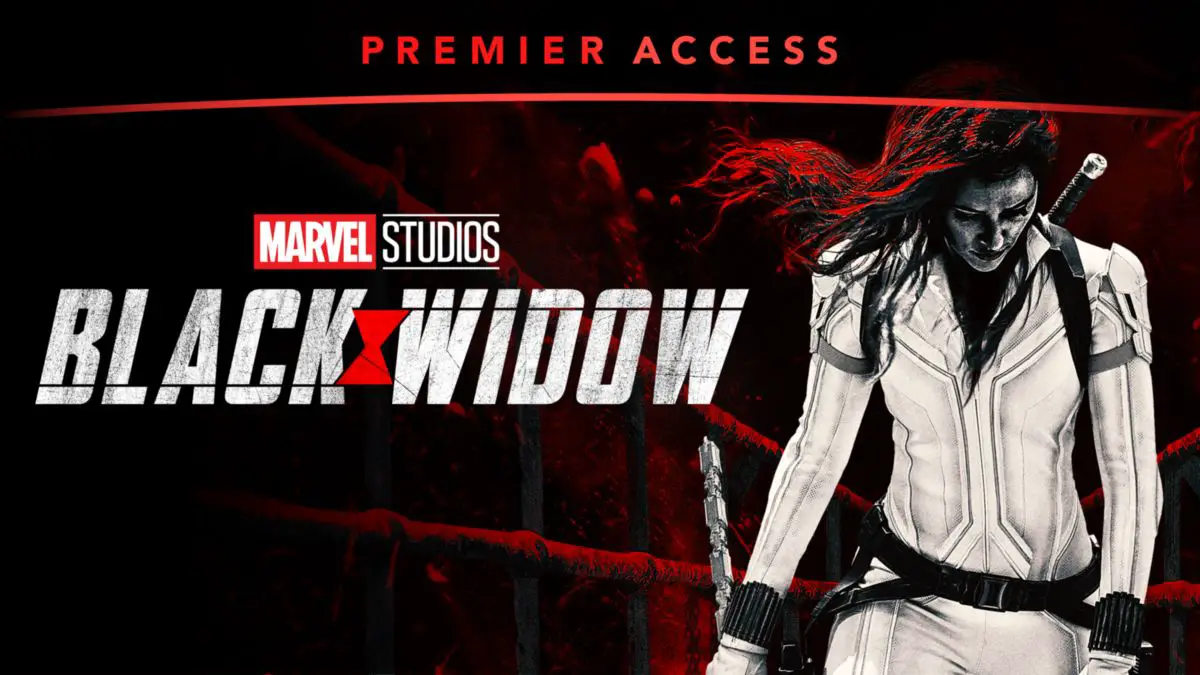
Black Widow Premier Access. Photo: Disney+
The complaint states Disney’s simultaneous release of Black Widow dramatically reduced the film’s box office earnings:
According to an article from one well-known Hollywood trade journal published three days after the Picture was released: “Veteran distribution executives say it’s clear that the availability of the movie on Disney+ cannibalized box office, noting that an entire household might have gone to see the movie in the theatre but could instead pay just $30 to watch it together at home.” Another article from a different, but equally well-known and established, industry publication declared: “There’s no question that the Disney+ Premier availability of Black Widow ate into its domestic opening weekend box office.”
Marvel movies generally bring in over $100 million on average in ticket sales on opening weekend and sometimes bring in more than $400 million, like 2019’s Captain Marvel.
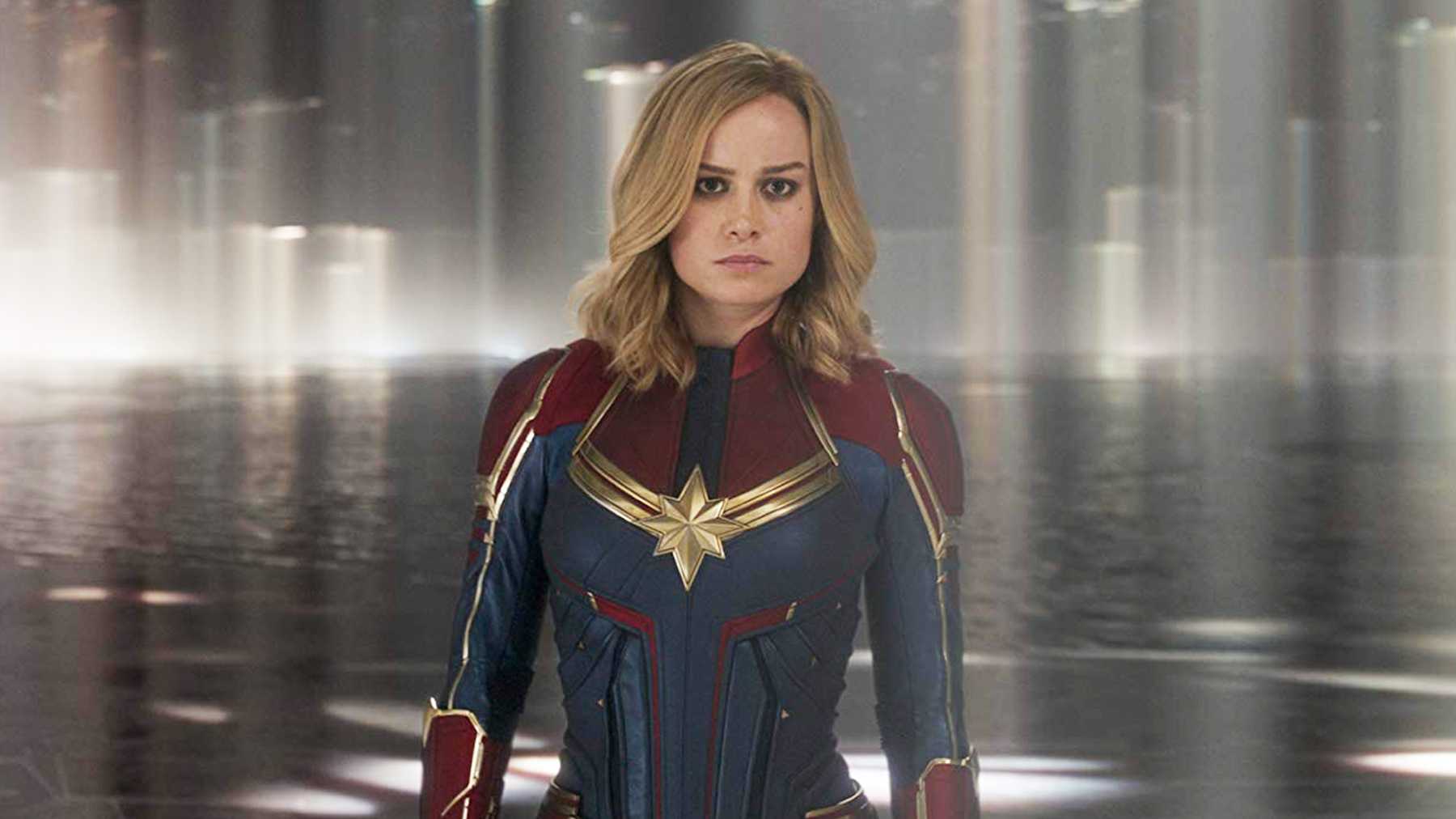
Captain Marvel. Photo: Marvel Studios
But for some reason, I don’t think the losses that Black Widow suffered are just because of the simultaneous release. It’s more likely that the reduction in earnings are related to fallout from a global pandemic impacting millions of families.
So far, the reaction from fans has been mixed.
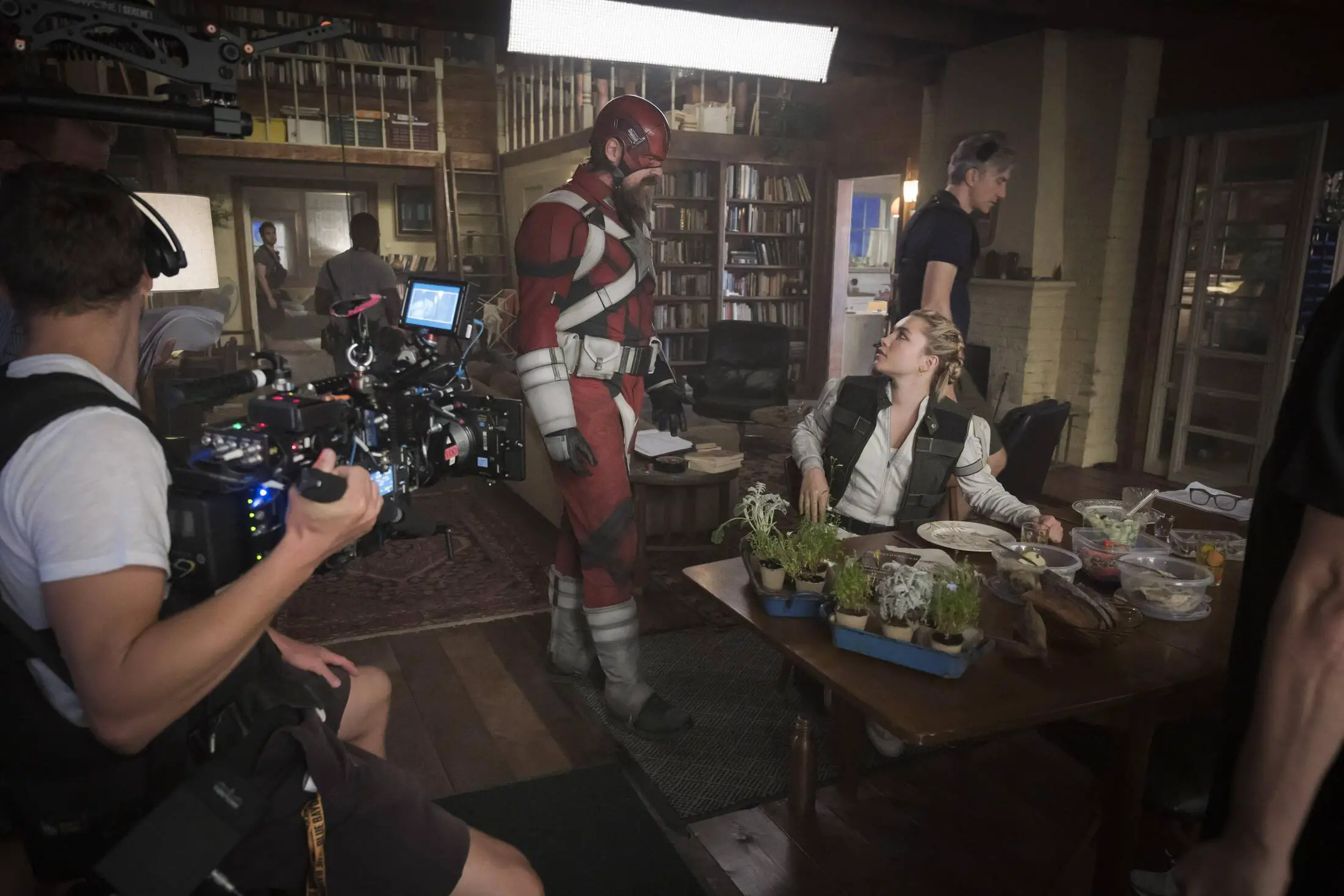
David Harbour and Florence Pugh on the set of BLACK WIDOW. Photo: Jay Maidment/Marvel Studios
Law & Disorder
Johansson’s attorney, John Berlinski, said to TheWrap that Disney’s decision to push Marvel for a simultaneous release had nothing to do with pandemic concerns, specifically stating:
It’s no secret that Disney is releasing films like Black Widow directly onto Disney+ to increase subscribers and thereby boost the company’s stock price – and that it’s hiding behind COVID-19 as a pretext to do so. But ignoring the contracts of the artists responsible for the success of its films in furtherance of this short-sighted strategy violates their rights and we look forward to proving as much in court. This will surely not be the last case where Hollywood talent stands up to Disney and makes it clear that, whatever the company may pretend, it has a legal obligation to honor its contracts.
Black Widow is one of the few heroes who was not Blipped in 2018’s Avengers: Infinity War. However, Marvel Blog True Believers will be forgiven for wondering if perhaps Johansson was blipped in real life for the last year, and somehow missed the ongoing global COVID-19 pandemic that cost Disney $5 billion in revenue and 67% loss in profits.

Black Widow Stunt Show Avengers Campus in the Disneyland Resort. Photo: Disney
Johansson claiming that Disney is “without justification” for releasing Black Widow on Disney+ ignores the fact that it’s unsafe to be in public when not everyone is complying with recommended COVID-19 precautions, especially for high risk people.
What About the Pandemic?
To win a tortious interference claim, also known as economic interference, Johansson will have to prove that Disney did more than interfere with her potential earnings because of the pandemic. Johansson’s team of high paid lawyers will likely have to convince the court of two things:
(1) Disney engaged in conduct that was “wrongful by some measure other than an interference” with the actor’s financial interest; and
(2) that the company’s decision to do a simultaneous release was not a legitimate and justifiable business decision as a result of the COVID-19 pandemic (see Della Penna v. Toyota Motor Sales, USA, Inc., 11 Cal.4th 376, 393 (1995)).
The Centers for Disease Control and Prevention states that one in four adults in the United States lives with some sort of disability, and women are more likely to have a disability than men. And the European Women’s Lobby says, “Globally, women make up three-fourths of the disabled people in low and middle income countries,” and disability has disproportionate impacts on the earning potential of women everywhere.
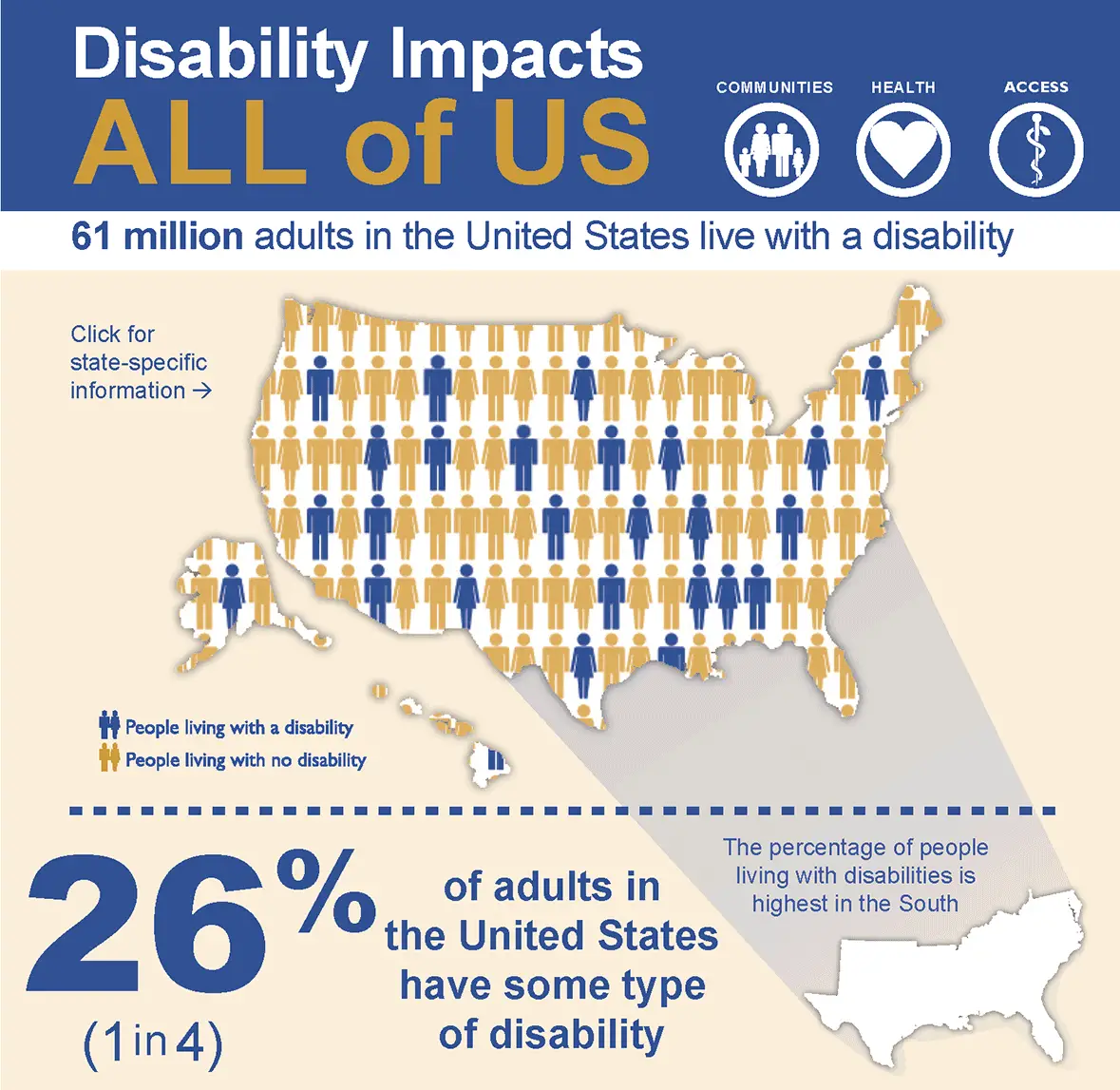
Disability Impacts All. Photo: CDC
Given that Black Widow was the first female-led superhero movie, and among women and LGBTQ+ moviegoers there is a higher rate of disability, by allowing the film to go to simultaneous release, Disney was able to reach more of Johansson’s fan base.
For Marvel fans who are immunocompromised or otherwise high risk (like me), if the movie is only released in theaters, we will have no chance but to wait to watch until it is released for streaming through Disney+. We do not have the privilege of taking the risk of contracting COVID-19 by seeing the movie in a theater, because the consequences we would face if we contracted it are too high.

Ian McKellen after getting COVID-19 Vaccine. Photo: Ian McKellen Twitter
Overall, Johansson’s lawsuit doesn’t take into consideration the many disabled and otherwise high risk fans who would not have been able to see the movie yet if it were only in theaters… she’s only thinking about her paycheck, not about the “justification” for Disney’s decision in the midst of a global pandemic. In light of the rest of Hollywood shutting down due to COVID-19 safety concerns, it seems hard to argue that the global pandemic didn’t impact the company’s decision.
From the much-anticipated prequel to “Game of Thrones” to “Mission: Impossible 7,” production of shows and movies is again being disrupted because of Covid-19 https://t.co/bK8tS4BqRY
— The Wall Street Journal (@WSJ) July 30, 2021
Disney Fires Back
Just hours after the news initially broke, Disney responded to the lawsuit by saying it has “no merit whatsoever” and that the actor received $20 million in compensation up front. In an announcement from Variety, the studio slammed the Black Widow star’s breach of contract lawsuit for showing “callous disregard for the horrific and prolonged global effects of the COVID-19 pandemic.”
Hours after Scarlett Johansson filed a lawsuit against Disney, the company has fired back, slamming the #BlackWidow star’s breach of contract lawsuit for showing “callous disregard for the horrific and prolonged global effects of the COVID-19 pandemic.” https://t.co/r52aUVsE6L pic.twitter.com/5hWx6QCS2A
— Variety (@Variety) July 29, 2021
In addition, a Walt Disney Company spokesperson told TheWrap that, “Disney has fully complied with Ms. Johansson’s contract and furthermore, the release of Black Widow on Disney+ with Premier Access has significantly enhanced her ability to earn additional compensation on top of the $20M she has received to date.”
However, a person familiar with the actor’s side of the contract claim implied that Disney’s argument doesn’t hold up, telling the WSJ that the decision to put Black Widow on Disney+ is projected to have cost Johansson more than $50 million.
The decision to put “Black Widow” on Disney+ is projected to have cost Scarlett Johansson more than $50 million, a person familiar with details of her contract claimed https://t.co/eFpULwFMq0
— The Wall Street Journal (@WSJ) July 29, 2021
But as I said earlier, that number will have to be proved in court. Since Johansson is seeking both punitive and monetary damages, she could win a lot more money in this lawsuit than her lost profit. And since jury’s are more likely to reward higher damages, the actor’s claim states that she is seeking a trail by jury.
Let Shang-Chi Stream
This lawsuit is especially selfish because it makes it less likely that Disney will make the decision to release other MCU movies for streaming on Disney+ at the same time they are released in the theaters. Not all of us come from wealth and have a private theater for personal screenings on our properties, Johansson! Perhaps you should check your privilege.
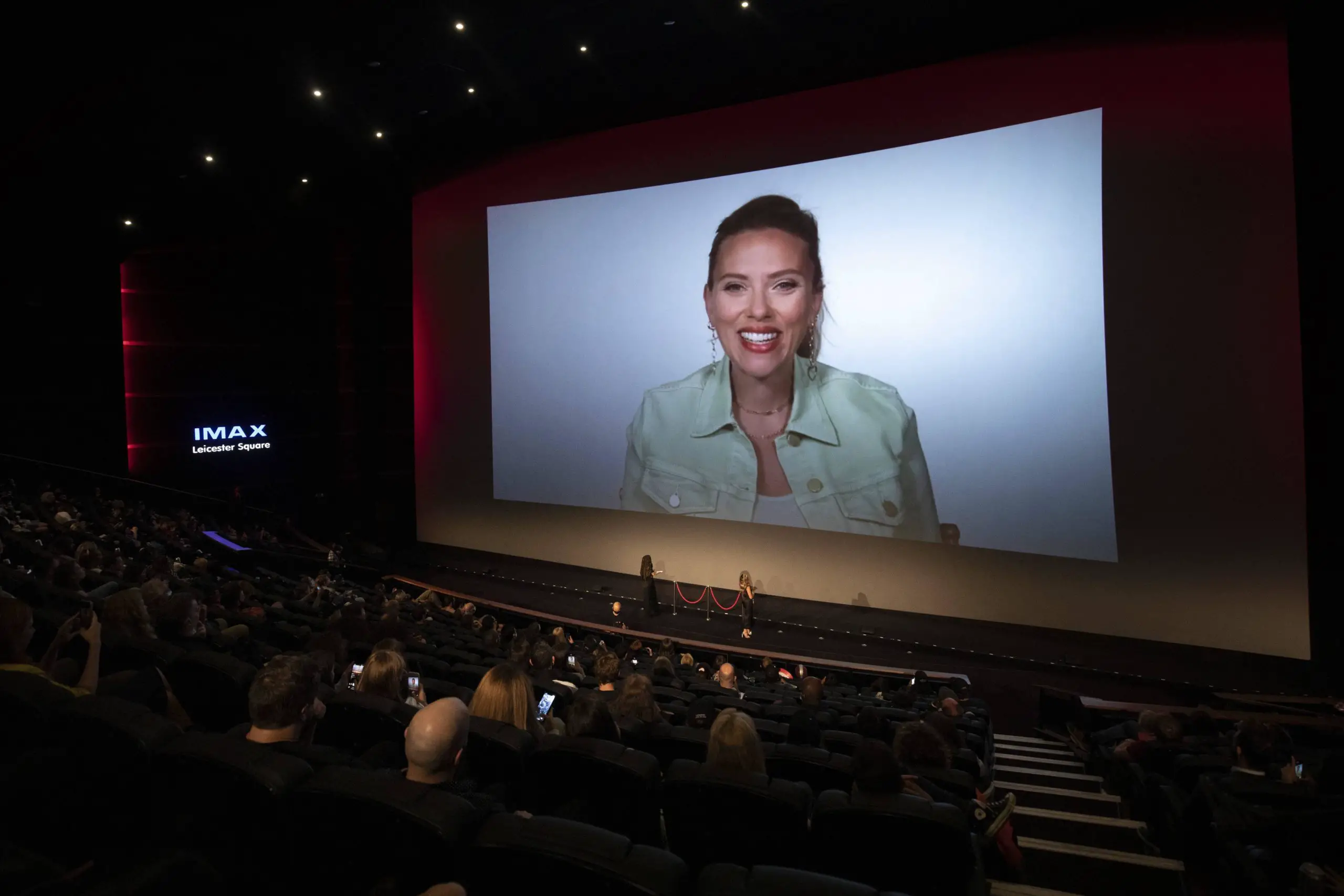
Host Vick Hope and Florence Pugh are joined by Johansson on stage at the Black Widow fan event in London. Photo: Marvel
Did you stream Black Widow with Premier Access (like I did), Marvel Blog True Believers? Have you had a chance to see how well Black Widow did in spite of its novel release method? Will we get to see more of Florence Pugh as the new Widow in Hawkeye? Let us know what you think in the comment section!


